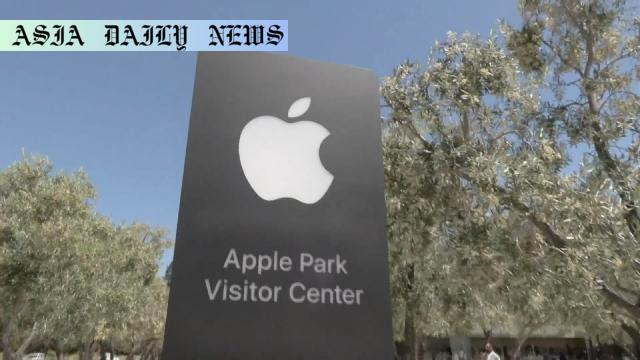Diversity: Apple shareholders reject proposal to end DEI program, showcasing commitment to inclusivity and innovation.
- Apple shareholders have rejected a proposal to end the DEI program.
- A conservative think tank proposed ceasing the initiative citing risks.
- Apple reaffirmed its commitment to diversity and collaborations.
- CEO Tim Cook emphasized the importance of inclusivity to innovation.

The Rejected Proposal Against Diversity
Apple’s recent shareholder meeting has drawn significant attention following the rejection of a controversial proposal to dismantle its Diversity, Equity, and Inclusion (DEI) program. The initiative, brought forth by a conservative think tank, argued that DEI programs jeopardized companies by exposing them to legal, financial, and reputational risks. Despite this, Apple shareholders voted against the proposal, reflecting a strong commitment to these values.
Apple’s Firm Response
Responding to the proposal, Apple stated that eliminating the program was unnecessary, given the company’s robust compliance system and operational autonomy. Apple emphasized that constraining its ability to manage internal business processes, teams, and strategy would undermine its capability to maintain a forward-thinking and inclusive environment. This stance reinforces Apple’s commitment to fostering an inclusive workplace that benefits employees and consumers alike.
Tim Cook’s Commitment to Diversity
Tim Cook, Apple’s CEO, has consistently highlighted diversity as a cornerstone of Apple’s innovation. Addressing the meeting, Cook reiterated how Apple’s hiring practices prioritize diverse perspectives, enabling teams to create groundbreaking technologies. “Our strength lies in our people,” he remarked, accentuating the importance of employee collaboration from varying backgrounds to deliver exceptional experiences for users.
The Wider Context of DEI in the US
In recent years, scrutiny of diversity programs has increased across various sectors in the US. High-profile entities, including the federal government under Donald Trump, have questioned the efficacy and need for such initiatives. Despite this broader debate, several corporations, including Apple, continue championing diversity, recognizing its tangible impact on innovation and culture.
Repercussions and the Future
The decision to uphold the DEI program serves as a defining moment in Apple’s ongoing commitment to its values. The tech giant has positioned itself as a leader in promoting diversity, even amidst external criticism and skepticism. While this choice aligns Apple with other like-minded organizations, it also sparks renewed discussions around the balance between inclusivity and potential risks. Apple’s stand reaffirms the positive aspects of diversity, emphasizing its role in driving creativity and market competitiveness.
Conclusion
Apple’s shareholders made a powerful statement by rejecting the anti-DEI initiative, highlighting the company’s unwavering support for diversity, equity, and inclusion. As the debate surrounding such programs continues in the US, Apple’s decision is a testament to its belief that innovation thrives where diversity prospers. The tech industry, and perhaps the wider corporate world, can look to such moments as a crucial example of standing firm on principles amidst external pressures.



Commentary
Diversity: A Building Block of Innovation
Apple’s recent rejection of the proposal to dismantle its DEI program highlights an important fact – innovation and diversity go hand in hand. Today’s global challenges demand fresh ideas, unique perspectives, and unconventional thought processes. These elements are made possible when organizations, such as Apple, draw upon talent from diverse backgrounds. Diversity is not just a compliance metric; it’s a strategic advantage that allows companies to address multifaceted problems and cater to a broader audience.
Setting a Leading Example
By voting down the anti-diversity proposal, Apple sets an inspiring precedent for other organizations. While pressures to streamline operations or avoid controversy may dictate contrary decisions, Apple’s firm commitment to inclusivity shows strength and confidence in its values. This move will likely consolidate its credibility among customers, employees, and stakeholders, promoting collaborative efforts in future endeavors. Moreover, it demonstrates how a leadership team can define culture through its actions, inspiring trust and loyalty.
A Broader Reflection on Corporate Leadership
Apple’s stand reflects the growing dialogue about corporate responsibility in society. Diversity and inclusion extend beyond internal operations; they signal foresight and adaptability in an ever-changing business landscape. Companies that prioritize such principles distinguish themselves as ethical and innovative, ultimately strengthening their position in the market while contributing meaningfully to societal progression.
Looking Ahead
Apple’s shareholders have delivered an unequivocal message for the future: diversity must remain a priority. The decision reflects a broader belief that companies are responsible for setting benchmarks that go beyond mere profitability. Organizations must now navigate these waters carefully, recognizing the merits of varied perspectives and inclusivity to remain competitive and relevant in today’s connected world.